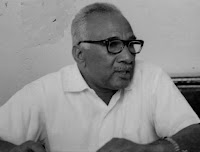الحروز
Collected by
R.G. Anderson earlier to 1913. (see reference page 48, and material amulets page 132).
1.
Al-Barad (hail). An opaque white stone worn
round the wrist in order to protect the wearer’s horse from horse sickness. It
is supposed to fall with the hail, hence the name.
2.
Hajar Al-Damm (blood stone), mounted as a
ring.
3.
Hajar Al-Damm, used as a neck ornament. It is
placed in water as a specific cure for sunstroke and headache. In epistaxis one
of these stones is tied round the forehead to check the bleeding.
4.
Al-Hajar Al-Akhdar (green stone) mounted as a
ring.
5.
Al-Hajar Al-Akhdar (green stone), roughly cut
as a neck ornament. The stone is placed in boiling water which when cool is
administered locally and internally in cases of sunstroke and headache. The
stone also acts as a styptic when locally applied.
6.
Al-Ferous (turquoise). Worn set in a ring.
Placed in hot water, which is then drunk to relieve vesical retention. Looked
at the first thing in the morning it brings good luck for the rest of the day.
7.
Kadug. Horn fitted with an unidentified root
for protection against wounds.
8.
A spurious written charm.
9.
Al-Hafidha (protector). A silver charm
suspended round the necks of children to protect them against the evil eye and
illness arising therefrom. The inscription runs as follows: “Protector! Protect
our little Ali from evil”.
10. Horse charms,
to protect horse and rider from illness and bad luck on the road.
11. Abu Abyad, to
protect children against the ill effects of the evil eye.
12.
Goza, to protect children against the ill
effects of the evil eye.


Comments